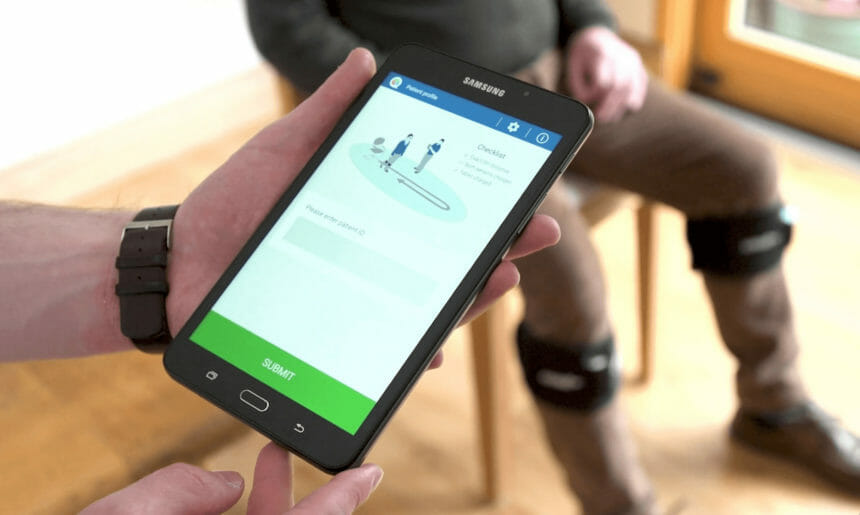
Eldersburg, MD-based Integrace is testing technology meant to help independent living residents assess and reduce their risks of falling.
Earlier this year, the provider began a pilot study of QTUG, new technology created by Kinesis Health Technologies of Ireland. Residents participating in the study wear two wireless sensors on their shins and then complete a test that involves rising from a chair, walking about 10 feet and then sitting again. The results of the assessment are delivered to a mobile device via Bluetooth, and the resident receives a score that rates his or her fall risk, mobility and frailty.
“Many of the residents chose to complete the assessments because they had fallen the previous year,” Integrace Senior Director of Health and Fitness Adam Decker told McKnight’s Senior Living. “Additionally, others wanted to take the assessment to proactively learn their fall risk and identify ways to prevent a fall in the future.”
To date, approximately 45 independent living residents at Integrace Fairhaven, a life plan community in Eldersburg, MD, have completed assessments under Decker’s supervision.
“There are currently 315 independent living residents at Fairhaven,” he said. “The overall goal is to have most of them complete a QTUG annually. Down the line, we hope to also encourage all new residents to complete the test initially after they move in and also implement the QTUG assessment for assisted living and long-term care residents.”
Decker is using the scores of the completed assessments to make personalized exercise recommendations to help residents improve their scores and reduce their fall risk.
“Individualized recommendations are made for each person to address modifiable factors such as lower body strength or gait training,” he said. “Recommended exercises can be done in the fitness center, a group class or independently at home, depending on the person’s risk level and preference. In addition to exercises, residents identified as high risk are referred to therapy for possible support, and each person is encouraged to review personal clinical risk factors for falls with their primary care physician.”
The technology is being used in about a dozen continuing care retirement communities in the United States right now, according to Integrace. The CCRC was introduced to the company last year through the Integrace Institute.
“The Integrace Institute routinely partners with technology companies to conduct research collaborations in areas relevant to neurocognitive living, including determinants of health conditions that are risk factors for neurocognitive disorders, such as propensity towards falls, or fall risk,” Tabassum Majid, Ph.D., executive director of the Integrace Institute, told McKnight’s Senior Living.
Investigators liked Kinesis’ researched-based approach to developing the QTUG technology and decided to try it to further promote health and wellness for Integrace residents, he said. Philip Burkholder, executive director at Integrace Fairhaven, offered to pilot the program at Fairhaven and purchase the technology for future initiatives, Decker recounted.
QTUG is commercially available in the United States, Canada, Europe and Australia, Kinesis Health Technologies CEO Seamus Small told McKnight’s Senior Living.
Among other programs related to reducing falls risks in residents at Integrace, Decker said, is the FallProof Balance and Mobility course developed by California State University, Fullerton. “And residents have access to the HUR Labs iBalance system to specifically train and improve balance,” he added.
Also, a nursing student helps evaluate and update Integrace’s post-fall clinical algorithms in healthcare, Majid said. “In this manner, research is helping to not just identify those at risk with Kinesis but also ensure appropriate holistic follow-up to include non-medical factors that may have influenced someone’s fall,” he said.



